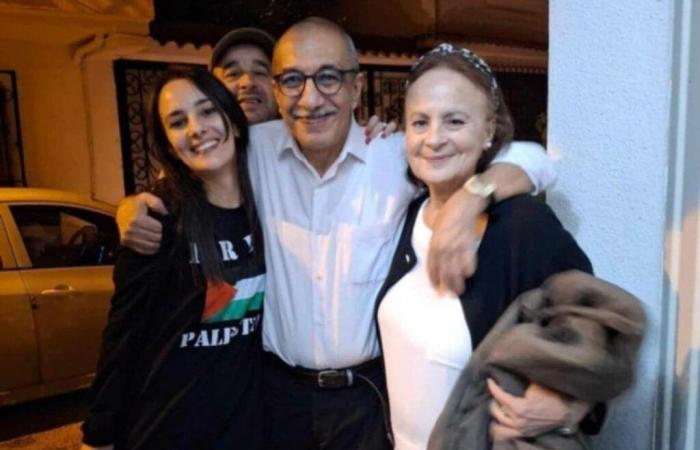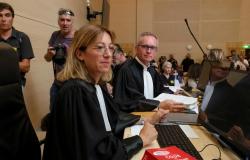Algerian journalist Ihsane El Kadi, imprisoned since the end of 2022, was released on Friday 1is November thanks to a pardon granted by President Abdelmadjid Tebboune, on the occasion of the seventieth anniversary of the start of the war of independence (1954-1962), lawyers indicated.
“What happiness, Ihsane El Kadi is free! »wrote on his Facebook page one of his defenders, Me Noureddine Ahmine, publishing a photo of the journalist, director of one of the last independent media groups in Algeria, returning to his home, surrounded by members of his family. “Ihsane El Kadi is finally among his own people. Released a 1is november. The end of a nightmare »also rejoiced lawyer Nabila Smail.
Read also: Ihsane El Kadi, figure of the Algerian press, sees his sentence increased on appeal to seven years in prison
Read later
Mr. El Kadi was sentenced on appeal in June 2023 to seven years in prison, including five years, two more than at first instance. In October 2023, the Supreme Court rejected an appeal, making his conviction final.
Wave of solidarity
The journalist, director of one of the last private press groups in Algeria (Interface Médias, which includes Radio M and the news site Emerging Maghreb) was prosecuted for “foreign financing of his company” with the aim of “engaging in activities likely to undermine state security”.
His lawyers argued for his innocence during his trial, pointing out that the sums had been paid by his daughter Tin Hinane, based in London and shareholder in his media group, to settle debt arrears.
Mr. El Kadi's arrest sparked a wave of solidarity among his colleagues and human rights activists in Algeria and Europe. A petition launched by the NGO Reporters Without Borders to obtain his release had collected more than 10,000 signatures.
Read also: Article reserved for our subscribers Algerian journalist Ihsane El Kadi, accused of “engaging in political propaganda”, boycotts his trial
Read later
Abdelmadjid Tebboune signed two presidential decrees to grant pardons to more than 4,000 detainees. The first concerns people definitively convicted in cases of “common law” and the second of the affairs of “disturbance of public order”.
At least eleven other detainees, including known activists from the Hirak protest movement, were also released thanks to this pardon. Hirak broke out in February 2019, forcing President Abdelaziz Bouteflika, who has since died, to resign two months later.






